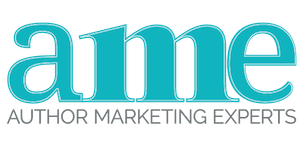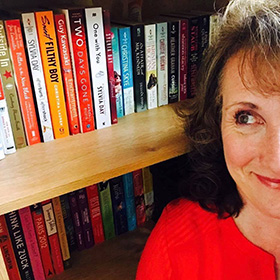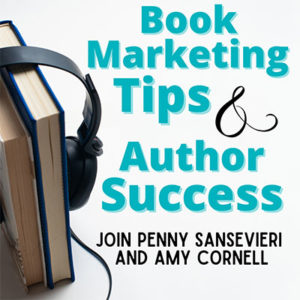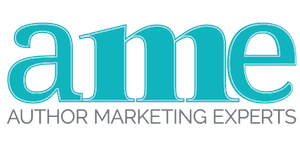Embarking on the journey from writing books to publishing them can be both thrilling and intimidating. There are a lot of options out there and we live in an era where anyone can get published, so there are lots of options (and a lot of opinions). And with the advent of self-publishing platforms, authors now have unprecedented power over when and how they publish. But with these options come risks, and they demand careful consideration and an understanding of the pros and cons of self-publishing.
So let’s dig into some critical considerations before you make your final decision on finding a publisher, or self-publishing:
1. Empowerment Through Control
Self-publishing grants an author control over their content, cover design, pricing, and marketing strategies. This control allows for greater creative expression and the ability to tailor the publishing process to align with individual goals and preferences. It’s also a lot easier to evolve as an author and a brand if you’re indie, because again, you have full control over all of it. You can respond quickly to reader preferences, shifts in your genre, or trending issues in your industry if you write non-fiction. It also allows you to see your work for sale faster than you could have ever imagined. But fast isn’t necessarily better, as we’ll address in a moment.
2. Financial Benefits
Self-publishing eliminates the need for a traditional publishing house, enabling authors to retain a larger portion of their royalties. With platforms like Amazon Publishing (KDP), IngramSpark, and others, authors can publish their work at minimal cost and earn higher royalties per sale. But tread cautiously here because it’s not a 1-to-1 proposition, meaning for every 1 review you get, or 1 marketing thing you do you get a sale.
And this isn’t just a statement on indie publishing, it’s an issue all authors face, regardless of how they are published. And it’s always worth noting most publishers don’t do extensive marketing, if they market at all. And most of the time they do the same things for all their clients, so it’s not specific to your brand. So don’t assume what you’re paying for a publisher covers all your marketing expenses as well, typically it’s far from it.
3. Flexible Publishing Timeline
Unlike traditional publishing, where timelines are often lengthy and uncertain, self-publishing offers flexibility in the publishing process. Authors can choose their release dates, allowing for quicker turnaround times and the ability to capitalize on timely topics or trends. This agility can be advantageous if you have a book that ties into a current news event, or pop culture trend, or has a strong seasonal tie-in. It’s also relevant to fiction authors because there are trends and shifts in fiction as well, and being able to align your release with a surge in interest for stories like yours, is priceless.
4. Learning the Business Side of Publishing
Self-publishing requires authors to adopt a business mindset. Beyond writing, authors must understand the publishing options being presented to them. A lot of times I see authors who get confused by the process, and wind up just handing their book over to a publisher who “takes it from there” – and sometimes this can be a great choice, but other times it can hurt your book, more than help it. It’s important to know when you’re getting into a situation that won’t support your goals, and that’s where the learning process can benefit you. So when weighing the pros and cons of self-publishing versus finding a publisher, don’t assume a publisher is the easy way out. It may seem simpler up front, but oftentimes you’re just delaying the education you’ll have to embrace eventually.
5. Due Diligence on Publishing Companies
I mentioned this before, but it’s worth a bullet point because while self-publishing is a much more straightforward way to publish, you should always exercise caution when selecting publishing platforms or service providers. Conducting thorough research and due diligence is essential to avoid scams or predatory practices. Reading reviews, seeking recommendations from other authors, and carefully reviewing contracts are crucial steps in ensuring a positive publishing experience whether you’re considering a publisher or choosing a self-publishing platform.
6. Exploring Publishing Options
When considering the pros and cons of self-publishing you want to keep the various platforms and distribution channels in mind, because each has advantages and limitations. As an author, you should explore different book editions such as ebooks, paperback, hardback, large print, and audiobooks to determine the best fit for your target audience. Also, do you want to “go wide” and publish everywhere? On the surface it seems like a great idea, right? But is it right for your book? Does it matter to your audience if they can get your book on Kobo or Apple iBooks instead of Amazon? For certain genres, going wide limits your ability to sell more on Amazon – because if your eBook isn’t exclusive to Amazon it can’t be in Kindle Unlimited which almost always benefits genres like romance, thriller, and mystery.
7. Insufficient Research Leading to Pitfalls
A lot of these points are about research, I get it – and research takes time. But rushing into self-publishing can lead to costly mistakes. From poorly formatted manuscripts to ineffective covers, all the details can hinder your success. Take note of the books in your genre on Amazon’s bestseller list. What makes them stand out? How does their cover compare to yours? Also, understanding the importance of a quality interior is key. There’s a lot of software out there that lets you design your own book interior, if you’re already a designer then great – but if you’re not this could lead to creating an interior that looks crammed and not readable.
Yes, self-publishing puts a lot more on your plate, but know there are a lot of authors out there with publishers who have also made mistakes. I see books from publishers with bad covers, with typos, with lackluster retail pages, it can happen to anyone. So do your homework, pay attention, stay involved and plan to advocate for your brand – don’t assume going with a publisher prevents all the potential problems.
8. Underestimating the Business Aspect
When I speak with authors about self-publishing and I mention the business side of things, it always feels like a buzz kill. I mean you just want your book out there and publishing is easy, right? It is, but it’s also a business. Ask yourself: is there a market for my book? What genre does this book belong in and does my cover match the reader’s expectations of this genre? Am I prepared to make an investment in my book and not expect immediate ROI? Self-publishing is not just about writing; it’s also about running a business. From budgeting for professional services to implementing effective marketing plans, treating self-publishing as a business venture is essential for achieving sustainable growth.
The transition from writer to published author through self-publishing offers some great opportunities to get your work out there. But it also requires diligence, perseverance, and a willingness to embrace new things.
Many indie authors meet these challenges every day after carefully reviewing the pros and cons of self-publishing, and so can you!
Resources and Free Downloads
Download our free monthly book marketing planner.
Download our free Reader Profile Brainstorm.
When to prep different elements of your author platform.
Here’s why your Amazon ads have stopped working.
Creating the perfect book title and subtitle combination.
Crafting the perfect book blurb.
How to get more traction from your social media efforts.
A helpful list of book awards and contests.
Check out all the episodes of our book promotion podcast anywhere you listen to podcasts!
Be sure to sign up for our newsletter on the right-hand side of our blog homepage. If you haven’t opened a recent one your registration may have lapsed.
Follow us on Instagram for book marketing tips and some much-needed levity!





0 Comments